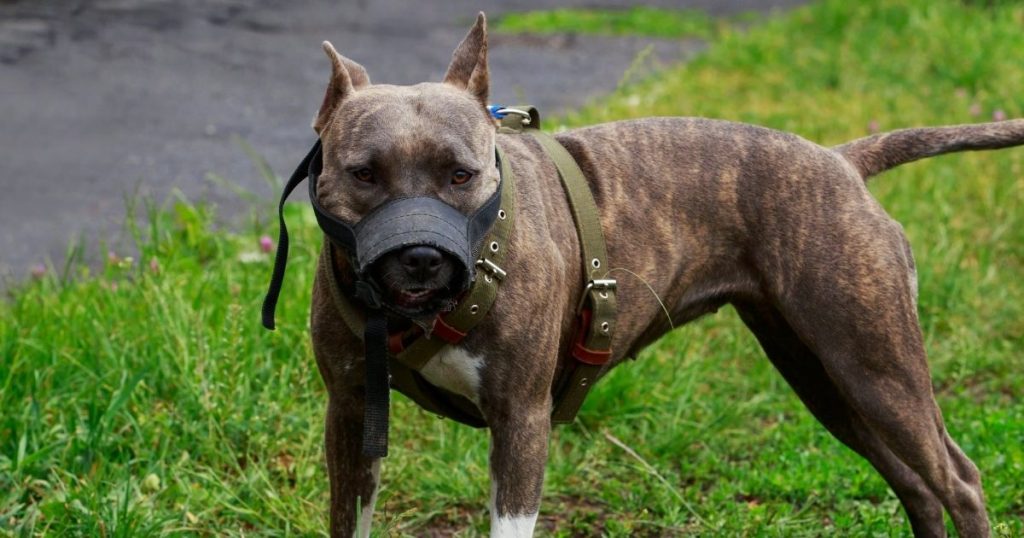Dog laws in Australia aim at effecting two things same as with every other country:
- Keeping dogs safe from neglect and cruelty.
- Checking that pets are no nuisance to the society
As a dog owner, you have to keep up with the laws, as your ignorance of any adjustments made could see you fined nonetheless.
In the remainder of the article, we’ve examined the most common laws you should be familiar with.
Animal Cruelty Legislation
Legislations regarding animal cruelty look out for your pet’s best interests.
Under the Prevention of Cruelty to Animals Act 1986, procedures such as ear cropping, debarking, and tail docking are illegal and only allowed on dogs if performed by a licensed vet and strictly for therapeutic reasons.
Allowing such acts to be carried out on your dog makes you complicit in animal cruelty and could see you get fined, serve time in jail, or be banned from owning dogs for life.
Debarking your Dog
Under Australian laws, you can only legally debark your dog if your neighbors see fit to report him to the district’s municipality, based on if he disrupts the neighborhood’s peace by barking excessively.
You’re expected to study your city’s code of practice and fulfill the requirements before carrying out the procedure.
One such is completing a Statutory Declaration where you solemnly proclaim to your local authorities that all auxiliary methods to stop your pet from barking have failed, and the procedure is your last resort.
Any of such methods could range from special care to specialist training.
Afterward, you must obtain a written declaration from the Council of the Municipal District where your dog is registered.
The declaration must affirm that two or three more of your neighbors have submitted complaints to the Municipal office regarding the nuisance.
Whichever vet you have chosen to conduct the procedure must make Animal Welfare aware of the procedure within a week of the request.
Tail Docking & Ear Cropping

As with dog debarking, only registered vet practitioners can carry out the docking or cropping operations.
These procedures are only legally allowed if deemed necessary to preserve the animal’s health and welfare.
Penalties Associated with Transgression
If an individual other than registered veterinarian docks or crops your dog tails or if you allow a veterinarian to perform such operations where it is not considered necessary to preserve the health of your pet, you can serve jail time up to a year or face possible fines of up to 250 penalty units.
Otherwise, if you exhibited your pet that’s undergone such a procedure without obtaining the proper permits, you could get fined up to 20 penalty units.
Law:
- Prevention of Cruelty to Animals Act (2022 – Revised)
- Prevention of Cruelty to Animals (Tail Docking of Dogs) Regulations 2004
Traveling/Driving with Dogs

If you ever decide to have Fido tag along on your summer vacay, then you know you have to pack his food and water.
Australian laws also mandate that you make suitable mechanisms to prevent him from distracting you while driving and protect him excessively from heat or cold.
Failing to do so could see you ramp up animal neglect charges.
Expanding more on the topic, it’s illegal under Australian law to:
- lock up your pet in a sedan-type car boot.
- have them locked up in a car for longer than ten minutes when temperatures are above 28 degrees.
- transport a dog not appropriately tethered to the back of a car.
If you would transport a dog in the back of an ‘open’ vehicle, for example, a truck, you must attach a lead long enough to permit your dog to sit or sleep with little or no constraints but short enough to keep him from reaching the sides of the vehicle or jumping down.
Law:
Confining your Dog

You are legally required to confine your K9 to your property.
This means that you must ensure that your dog is fenced-in and cannot escape easily by jumping over or crawling through your property.
Additionally, visitors or any other individual lawfully on your premises must be able to safely access your front door without being bothered by your pup.
The laws are enacted for various reasons and not just in the public’s best interests. Additional reasons include :
- Stopping him from wandering the neighborhood and possibly getting lost.
- Eliminating the odds of him getting hit by a car or getting possibly injured in a fight with other animals.
Under Australian liability statutes, you are legally mandated to make compensation for any medical expenses or lost wages an individual might have incurred from being injured in an attack on them by your dog.
Bear in mind that these costs could run into thousands of dollars.
Such dogs are declared dangerous, and it’s not unusual for the courts to have them euthanized.
If they are allowed to live, strict laws apply to you as their owner for the rest of their lives, and such include:
- facing jail time for a minimum of 10 years if your dog kills someone,
- facing jail time for up to 5 years if he leaves anyone in mortal danger, for example, in a coma
Law:
Registration of Dogs
You are expected to register your pup with your local council as soon as he clocks three months and renew previous registrations on the tenth of April of the succeeding year.
Not registering your pet when due is illegal under the Domestic Animal Acts 1994, and you can be fined for failing to comply.
If you have more than one pet, you must register them singly with your local council.
At times, the council may require that you obtain permits before keeping multiple pets. It’s great to keep up with your state’s regulations as they tend to evolve with time.
Microchipping
Before registering your dog with your local council, you need to have him microchipped initially.
Microchips are little computerized tags inserted between the shoulder blades of your dog’s skin.
They are about the size of a grain of rice.
Chips identify your dog for life, a suitable scanner need only be passed above the insertion spot, and a number you can check against a database is obtained.
The entries corresponding with the number provide details of the dog’s owners.
Not having your pup microchipped before he turns three months old could see you fined for non-compliance.
In the scenario where having your dog microchipped will negatively influence his health, you are expected to obtain an exemption letter from your vet certifying the existence of the underlying health concerns.
Microchips were introduced to make it easier for strays to be returned to their owner and reduce the compulsory euthanasia of dogs.
Also, in the possible scenario where your dog wanders and gets injured, the chips aid the vets in quickly obtaining your details and reaching out to decide on your dog’s treatment.
Only registered vets or authorized implants are allowed to make chip implants.
It’s illegal to implant a second chop unless the initial chip has moved outside of the scanning area or its ID number does not have a unique identification of the dog.
An identification certificate will be issued to you from the registry, where the info is kept upon chipping.
Law:
Dangerous Dog Laws

Your local council reserves the authority to decide whether or not your dog is menacing or dangerous.
Under Australian laws, your pet would be tagged menacing if it chases after a person in a manner intimidating enough to cause concerns for the person’s well-being and safety.
On the other hand, dangerous dogs must have bitten or attacked an animal or livestock to result in mortal death or injury to be regarded as dangerous.
Restricted Dog Breeds
Any act involving aiding the seeding of a restricted dog breed is punishable by law. Such actions include the purchase or breeding of a dog in Australia.
Restricted breeds in Australia are:
- American Pit Bull Terrier (Pit Bull Terrier)
- Perro de Presa Canario (Presa Canario)
- Dogo Argentino
- Japanese Tosa
- Fila Brasileiro
Requirements for Dangerous/Restricted Dog Owners
Suppose a dog declared dangerous by law or is a Restricted Dog Breed guards your premises, be it your house or your business surroundings.
In that case, it’s illegal not to place a warning sign indicating the presence of such on your premises.
Whenever you are out in public, and you have them tagging along, they must be muzzled and kept on a lead and must be in the care of an adult over 18.
You are liable for full compensation, alongside possible jail time, for any medical expenses a visitor or any individual lawfully on your premises may suffer from your negligence or deliberate non-compliance.
Law:
Dog Shops
If you sell dogs, you are legally required to register your business with the local district as a Domestic Animal Business and stick to the mandatory code of practice.
Additionally, upon purchase of any dog, you are expected to provide buyers with the health history of their new pet.
Selling dogs from market stalls is illegal and would get you fined.
As far as Australian law is concerned, acceptable dog shops are permanently located and are open for a minimum of 5 days a week.
Before you can offer dogs for sale, they must meet the minimum age criteria of:
- Two months for dogs from a registered shelter
- Six months for dogs from a licensed foster house
You must have the dogs chipped according to the regulations explained beforehand before selling them.
Rights as a Dog Owner
Suppose within a week of your dog’s purchase, and you find it necessary to return the dog based on the grounds of health issues traceable to the point of purchase of the dog and supported by a statement from your vet.
In that case, the shop is mandated by law to take the dog back and refund all initial payments you’ve made or offer another dog in replacement.
The same law applies if the animal dies due to health complications traceable to the dog shop.
All dog shops are expected to have their pets vaccinated against Canine Distemper and Canine Parvovirus for at least two weeks before having them sold.
As a potential dog owner, it’s your right to request a vaccination certificate before buying a pup.
Law:
Shooting Dogs
If a wild dog worries your livestock, you can shoot and destroy the animal without worrying about legal consequences.
For a domestic dog, though, you need to meet the following requirements:
- Living on a land non-subjectible to a rural levy
- Believing beyond reasonable doubt that the dog would attack your livestock and is currently not being controlled by anybody.
- Having the appropriate firearms license and observing state regulations with its use.
Law:
FAQs on Dog Laws in Australia
Are you liable under Australian law if your dog attacks someone?
As a dog owner, you are entirely liable for compensation for any expenses incurred if your pet attacks people or influences their injury in any other way (either by knocking them over or pursuing them).
Is it illegal not to clean up after your dog fouls in public?
Not cleaning up after your dog fouls in public could see you fined $200.
More often than not, local councils install poop dispensers in different districts to facilitate easy tidying up after your dog.
How many dogs can you have in Australia?
Restrictions vary with different states. In Victoria, you are allowed to keep two dogs.
You would need to obtain a permit from the local council if you would prefer to keep more than three dogs aged over three months.
The Bottom Line
In the interests of your dog and the general public altogether, we urge that you keep up with the latest adjustments to the dog laws in Australia to avoid accidental transgressions.
Registered vets and your district’s local council are your best bets to keep up with any updates you might otherwise be missing.
Related Dog Legislations:







